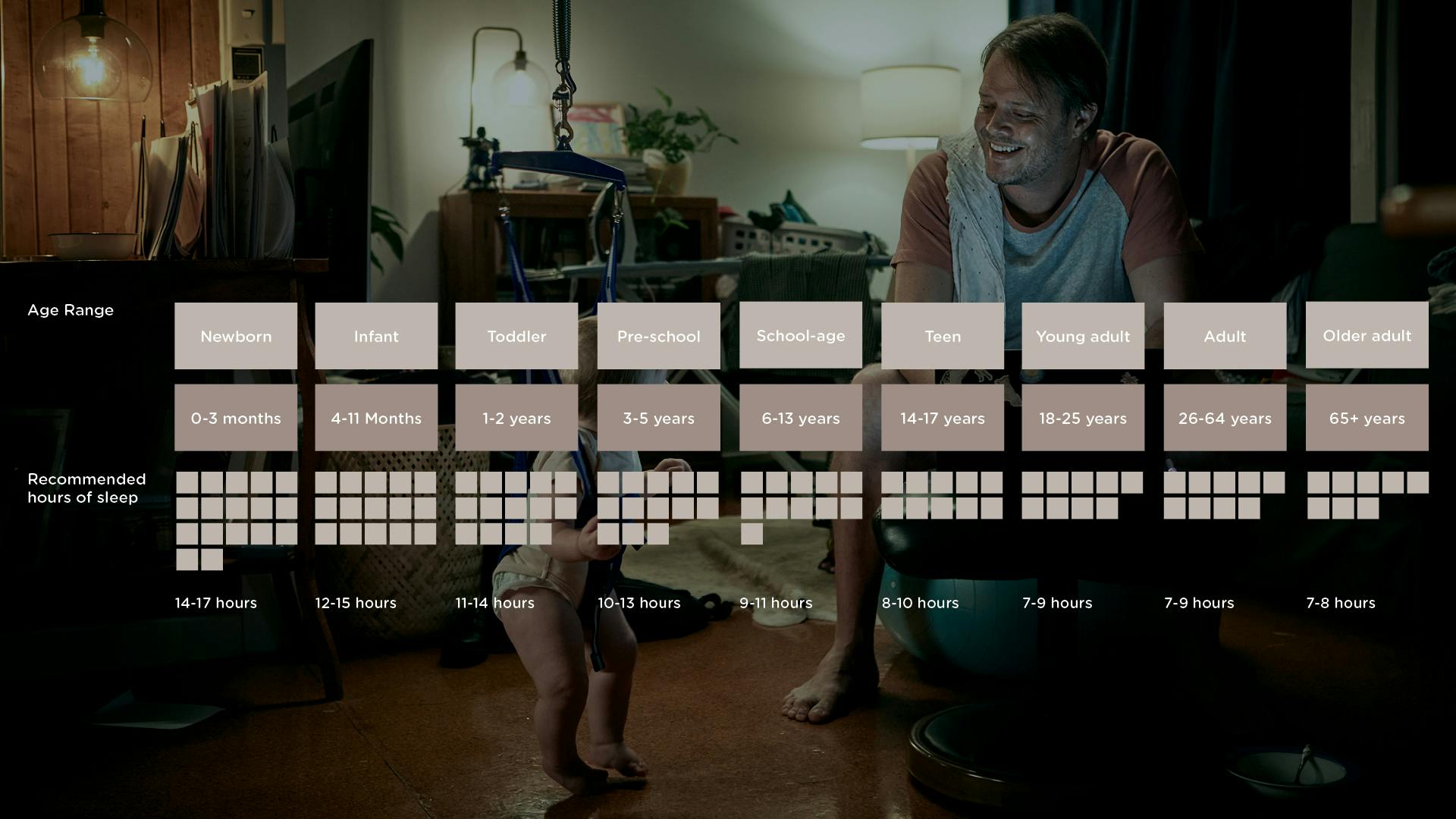How Many Hours Of Sleep Do We Really Need?

Sleep is essential because it can power the mind and restore the body. But how many hours of sleep do we really need to order to reap these benefits? This will all depend on an array of factors from your age to your activity level, sleeping pattern and overall health. Read on to find out how much of your time you need to be spending hitting the hay each night. You won’t be disappointed, we promise.
1. How many hours of sleep are recommended for each age group
You’re eating your five serves of vegetables and fruits and squeezing in exercise for at least 20 minutes per day, but are you getting enough sleep too? The Sleep Health Foundation’s latest sleep recommendations are nothing to fawn at and will make you think twice about skimping on the shut eye. Sleep is imperative for your physical health and emotional vitality, but how many hours of sleep you need depends on your age and development stage. Most adults need 7 to 9 hours each night to help them remain healthy. The infographic below derived from the Sleep Health Foundation’s latest recommendations helps paint the picture of the recommended range of sleep for healthy individuals based on their age. Do keep in mind that there is flex based on your circumstances as an individual.

2. How many hours of sleep do you as an individual need?
‘Too few hours of sleep or poor sleep could pave the way to a myriad of emotional and physical problems’ according to Phyllis C. Zee, MD, PhD, professor of neurology and director of the Sleep Disorders Centre at the Northwestern University Feinberg School of Medicine in Chicago. The above is a great starting point when it comes to mapping out how many hours of sleep are right for you. It’s also important when you’re looking to work out your sleep schedule each night, that you factor in your overall health, daily activities and existing sleeping patterns.
The following questions can help you assess your individual sleep needs:
- Do you feel productive on the recommended hours of sleep for you?
- Do you have any existing health concerns?
- Do you require a high level of energy in your day-to-day job?
- Do your daily activities require alertness to be completed safely?
- Are you experiencing or have you had a history of any sleeping issues?
- Do you need caffeine to get you through the day?
- Do you sleep more than you would on a typical work day on the weekend?
We recommend, using the above recommendations together with your answers to these questions to hone in on your optimal amount of sleep each night.
3. How to improve your sleep today
Once you have a nightly sleep goal, it’s time to turn your dreams into a reality. Once you’ve decided to take sleep seriously and budgeted the hours you need, it’s a great idea to look at methods to improve your sleep hygiene. It’s time to give your bedroom setting and sleep-related habits, a well-deserved makeover.
Examples of sleep hygiene improvements include:
- Setting and sticking to a sleep schedule (even on weekends).
- Minimising disruptions from light, noise and temperature. Disconnect from electronic devices like mobile phones and laptops for at least half an hour or more before bed.
- Practising a bedtime routine which de-stresses and relaxes you.
- Ensure you have a mattress which is supportive as well as appropriate pillows and bedding.
- Monitor your intake of caffeine and alcohol and avoid consumption of these within hours before bed.
Getting the right amount of sleep is important but don’t discount your sleep quality. Fortunately, improving your sleep hygiene often boosts both. We hope these guidelines will help you determine how much sleep you need per night and set you on the right path to get a better, more fulfilling night’s sleep. Afterall, it’s not about every waking hour, it’s about every sleeping hour and it’s amazing what a little Snooze can do.
References:
- https://pubmed.ncbi.nlm.nih.gov/29073412/
- https://www.everydayhealth.com/sleep/101/how-much-sleep-do-you-need.aspx
- https://www.sleepfoundation.org/how-sleep-works/how-much-sleep-do-we-really-need
- https://www.sleepfoundation.org/sleep-disorders
- https://www.sleepfoundation.org/nutrition/caffeine-and-sleep
- https://www.snooze.com.au/blogs/inspiration/sleep-debt-what-it-means-for-you
- https://www.betterhealth.vic.gov.au/health/conditionsandtreatments/sleep-hygiene
- https://www.snooze.com.au/blogs/inspiration/4-ways-to-improve-your-sleep